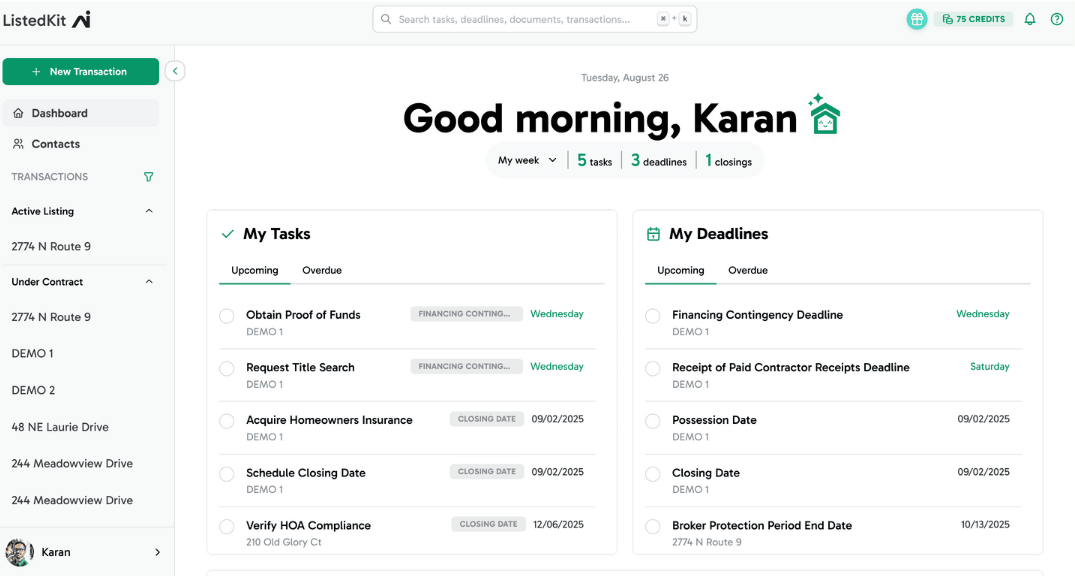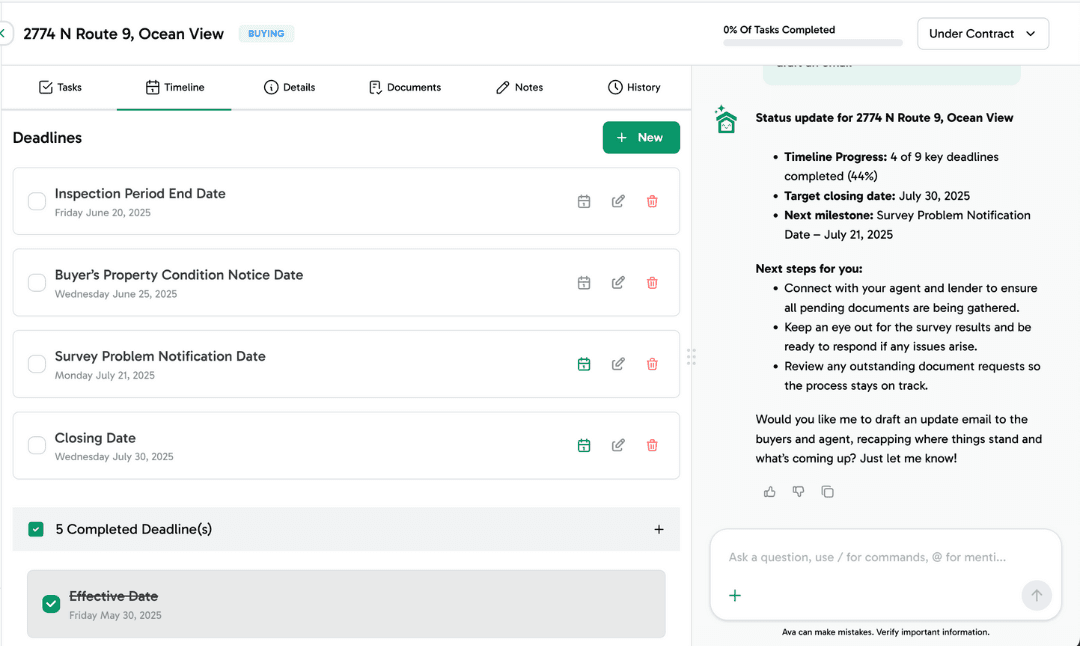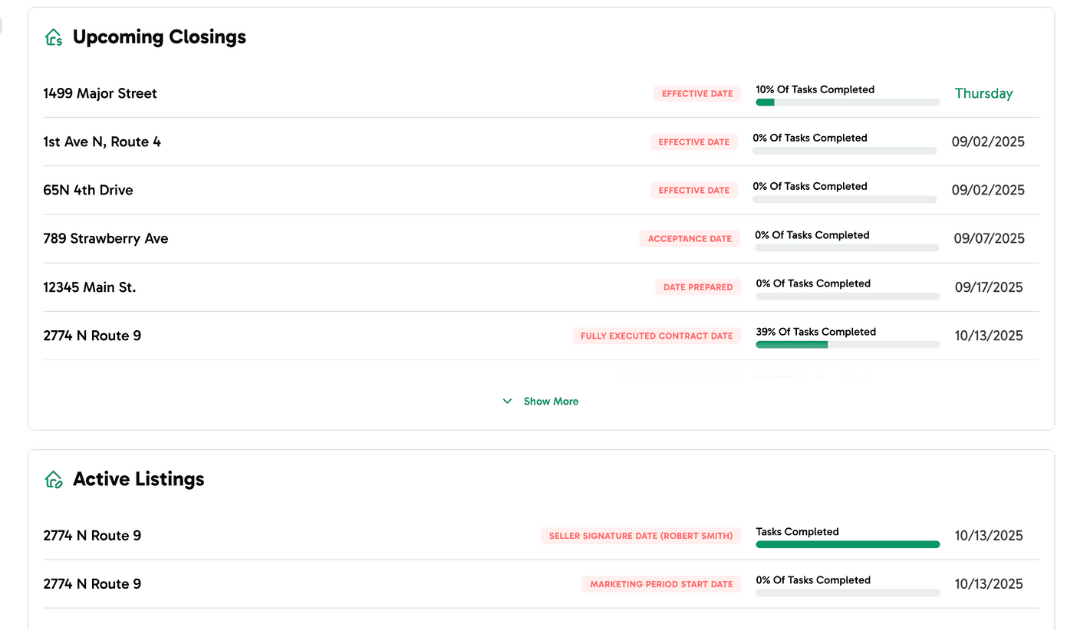Your AI virtual assistant for transaction coordination
Scale your TC business with Ava, the AI assistant that handles document reviews, email drafting, while you focus on complex coordination and client relationships.
Trusted by leading real estate professionals




Why transaction coordinators choose AI
Ava serves as your virtual assistant, handling the time-consuming routine tasks so you can focus on the high-value coordination work that requires your expertise and personal touch.
Focus on High-Value Work
Ava reads contracts and tracks deadlines while you manage complex negotiations and client relationships
Never Miss a Deadline
Deadline tracking calculates all critical dates and helps you stay on top of timelines
Serve More Clients
Scale your business by taking on more transactions without the stress of manual coordination
Increase Your Revenue
Handle 2-3x more deals with the same level of personal attention and service quality
Document Intelligence
AI reviews contracts for missing information, inconsistencies, and potential issues
Timeline Coordination
Add transaction timelines to Google Calendar or Outlook and coordinate with all parties
Meet Ava: Your AI virtual assistant for transaction coordination
Ava reads contracts, tracks deadlines, and manages transaction timelines so you can focus on the complex coordination and client service that makes you invaluable.
Why TCs Choose Ava as Their Virtual Assistant
Reads contracts and tracks deadlines
Contract analysis, timeline calculations, and deadline tracking
Integrates with Gmail, Outlook, and Calendar
Send emails directly from Gmail or Outlook and sync timelines to your calendar
Never needs training or supervision
Consistently accurate from day one

Built for transaction coordinators
Stay in control while Ava handles the details
You remain the expert coordinator your clients rely on, while Ava handles contract reading and deadline tracking.
- Deadline calculations and tracking from contracts
- Contract analysis and document intelligence
- Email drafting and timeline sharing capabilities


Scale your business without hiring
Take on more clients and increase your revenue without the overhead of additional staff.
- Handle multiple complex transactions simultaneously
- Maintain personal service quality at scale
- No training costs or employee management
Perfect for coordinators at every stage
New TCs (0-2 years)
- Build your reputation with professional, error-free coordination
- Take on more clients faster without overwhelming yourself
- Learn industry best practices built into the system
Experienced TCs (5+ years)
- Leverage your expertise while automating routine tasks
- Focus on complex problem-solving and client relationships
- Scale your business to premium pricing tiers
Trusted by transaction coordinators
"The automated deadline tracking is a game-changer. Ava alerts us to upcoming requirements before they become urgent, and the document management system keeps everything organized. Our team efficiency has improved dramatically."
"ListedKit AI has been a game changer for my business. It's like having a super fast second set of eyes on my documents. And even the humans are awesome! Karan gives Ava a run for its money!! Thanks for always being there!"
"I've been searching for an affordable and comprehensive program to ease the load that we're under. I've found this with ListedKit AI. Very easy to use and rings all the bells and whistles we need!"
Frequently asked questions
See exactly how much time you're losing to manual coordination
Get your personalized Transaction Coordination Score and discover how much revenue you could gain with AI assistance.
Takes 30 seconds • Get your results instantly
2025 Innovators Award Finalist
Innovators Award Finalist
Explore More Solutions
ListedKit AI works for everyone in the real estate transaction
Scale smarter, not harder
Let Ava handle the routine coordination while you focus on growing your business and serving your clients. Start with your first intake completely free.
✅ First intake free ✅ No setup fees ✅ 2-minute setup